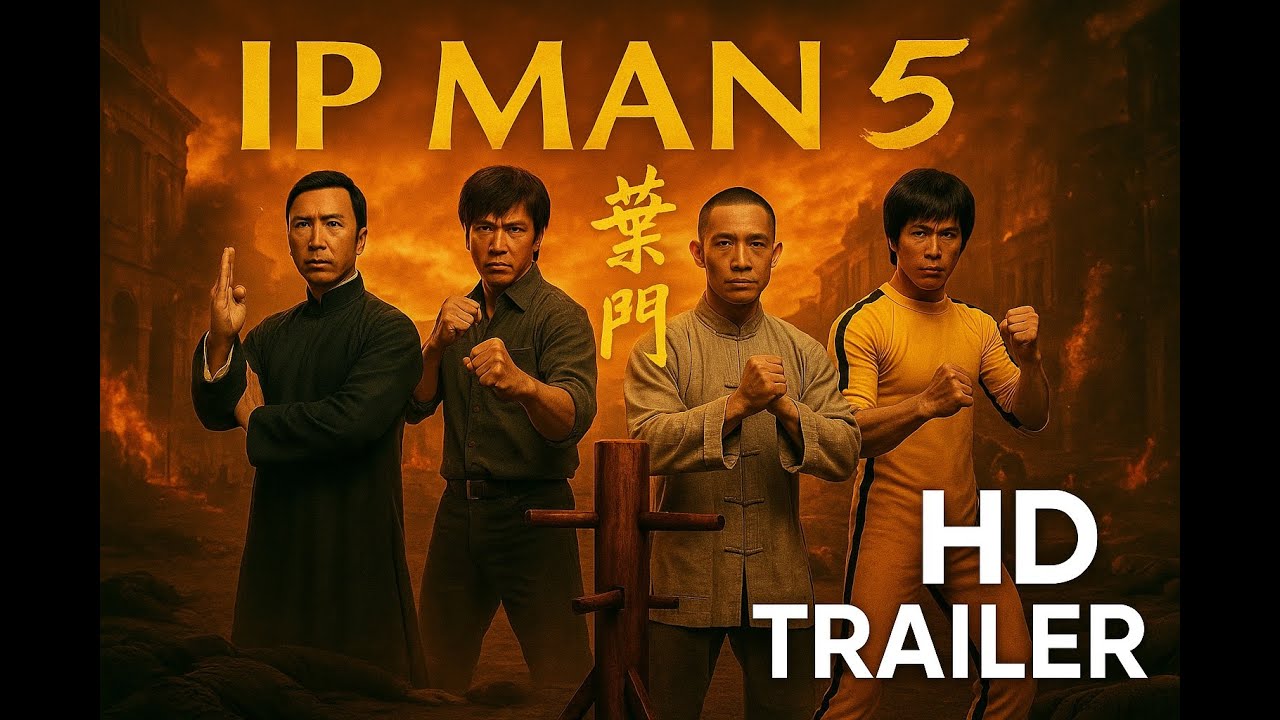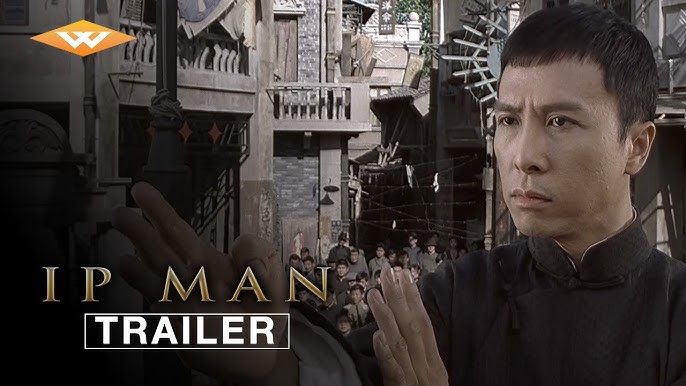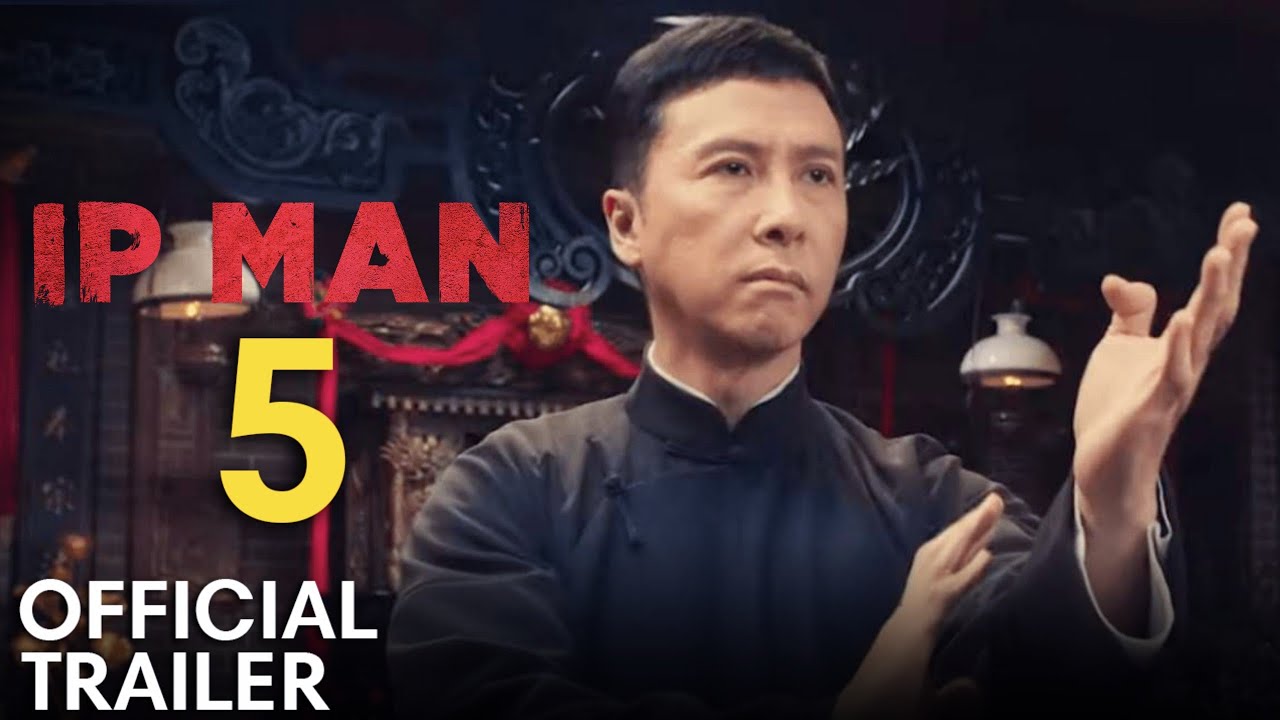Ip Man 5 (2025) “A Warrior’s Spirit Never Dies — It Only Evolves.”

When the screen fades in and the sound of wind slicing through the silence fills the air, you immediately know — Ip Man 5 (2025) isn’t here to entertain. It’s here to honor. The legacy of the Wing Chun master who defined a generation of martial arts cinema returns, not with youthful arrogance, but with aged wisdom, grace, and an unshakable calm that speaks louder than any punch.
The story opens years after the events of Ip Man 4: The Finale. The world has changed, and so has the master. Older, slower, yet still sharper than anyone who dares to test him, Ip Man has retreated into solitude — until fate, once again, refuses to let him rest. A new martial arts movement rises, claiming to surpass tradition. And with it comes arrogance, corruption, and violence that threaten to erase everything he once stood for.
Donnie Yen returns to his legendary role — and he’s never been more commanding. His performance is quieter, more restrained, but also more devastating. Every movement of his hands, every flick of his eyes, every breath carries decades of pain, patience, and power. When he steps into the dojo, it’s not a man entering combat — it’s a philosopher returning to remind the world what true mastery means.
The film’s emotional foundation lies in legacy. Ip Man’s journey is no longer about proving his strength; it’s about passing it on. A young protégé, lost between modern ambition and ancient discipline, becomes the symbolic bridge between eras. Through him, the master teaches that martial arts is not about domination, but balance — not about defeating others, but conquering oneself.
The action choreography, once again, transcends spectacle. It’s poetry in motion — a dialogue written through fists and spirit. The fight sequences are more grounded than ever before, emphasizing precision over power, philosophy over fury. One breathtaking sequence — where Ip Man faces five opponents in a rain-soaked alley — might be among the most emotionally charged moments in the entire series. Every drop of rain feels like the echo of a past life.
Yet Ip Man 5 doesn’t dwell only on nostalgia. It moves forward, exploring how martial arts philosophy adapts to a modern world obsessed with fame and speed. The tension between discipline and ego, tradition and technology, becomes the true battle — one that can’t be won with punches alone.
Cinematically, the film is magnificent. The lighting and framing transform each fight into a piece of art — shadows stretching like brush strokes across wooden floors, dust rising in slow motion as fists collide, the air vibrating with the rhythm of Wing Chun. The soundtrack — subtle yet stirring — blends traditional Chinese strings with modern undertones, reflecting the film’s theme of balance between old and new.

Donnie Yen’s Ip Man has always been a man of restraint — and here, that restraint becomes transcendence. Even in defeat, he radiates dignity. Even in silence, he commands respect. And when he finally delivers the film’s most powerful line — “Strength fades. Spirit does not.” — the theater falls into hushed reverence.
As the film draws to its conclusion, the emotion hits hard. There are no explosions, no overdramatized victories — just one man, one art, and one unbroken belief in the humanity behind every strike. The ending, bittersweet and luminous, feels like both a farewell and a rebirth. The legend rests, but the teaching continues.
Ip Man 5 (2025) isn’t just another martial arts film. It’s an ode to humility, honor, and the eternal strength that lies in gentleness. It reminds us that true greatness doesn’t shout — it whispers, with the quiet confidence of a master who has nothing left to prove.
Because in the end, Ip Man’s greatest victory was never over his enemies — it was over time itself. 🥋🔥
Related movies :
Related movies :
https://youtu.be/pMORcnLCo1E?si=y8vh-7XHJV_6vPd-
Related movies :
Related movies :
Related movies :
Related movies :
https://youtu.be/1rrZERwvxAo?si=hPpFJXaw80ZR-zsL
Related movies :










